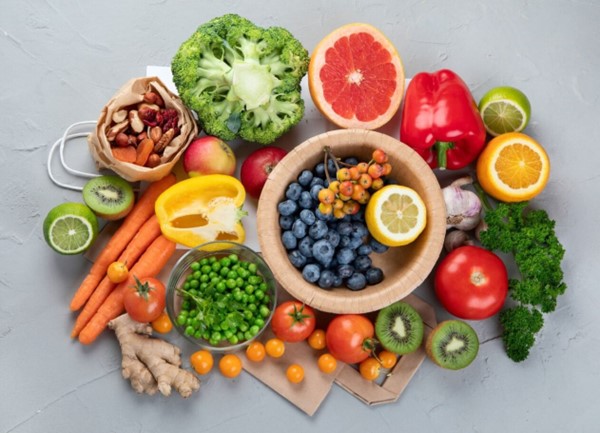Feeling the sniffles and eye irritation that come with summer allergies? You might be surprised to learn that what you eat can actually help with your symptoms. Studies have shown certain foods can ease hay fever symptoms, offering some relief during those pollen-filled months. Our guide covers what types of foods may help with symptoms. As always, talk to your doctor or allergy specialist first before making any big changes!
Foods that Fight Hay Fever Eating Your Way to Relief
There are links between diet and hay fever symptoms that, if followed, can reduce your symptoms significantly. We discuss which foods can help here.

Introduction
Vitamin C
Foods high in vitamin C have been shown to reduce symptoms of allergic rhinitis. So to combat that pesky pollen, it could be a good idea to load up on vitamin C. There are many foods high in this vitamin, including:
• Citrus fruits (grapefruit, lemons, limes)
• Bell peppers
• Berries (strawberries, blackcurrants)
• Broccoli and sprouts
Tomatoes are great too. Not only are they rich in vitamin C, but they also boast lycopene, an antioxidant that gives them their vibrant colour. Bonus: lycopene might help reduce asthma symptoms too.
Probiotics
The gut is incredibly important to our overall health. Around 70% of our immune system is housed in our guts. Probiotics, beneficial bacteria living in our gut, have been shown to ease allergy symptoms, especially for birch pollen sufferers. Consider adding these probiotic-rich options:
• Kombucha and fermented foods like sauerkraut and kimchi
• Miso, kefir, and yoghurt
• Tempeh, a fermented soybean product
• Some types of cheese, including mozzarella, cheddar, and gouda
Anti-inflammatories
A runny nose and itchy eyes are the result of inflammation and swelling in the lining of your nose and the protective tissue of your eyes. Increasing your consumption of anti-inflammatories could help reduce your hay fever symptoms. Foods include:
• Leafy greens like kale and spinach
• Fatty fish (salmon, tuna, sardines)
• Avocados and citrus fruits (oranges)
• Berries (cherries, strawberries, blueberries)
• Colourful fruits like grapes
• Healthy fats like olive oil, pumpkin seed oil, and flaxseed oil
• Natural anti-inflammatory powerhouses: turmeric and ginger
Need support with your hay fever?
Remember, while these foods might offer relief, it’s always best to consult your doctor or allergy specialist before making significant dietary changes.
At OneWelbeck, we have a dedicated team of experts from consultant dieticians through to consultant allergists to diagnose, treat and manage symptoms related to hay fever. For more information or to book an appointment with a specialist, visit our website.